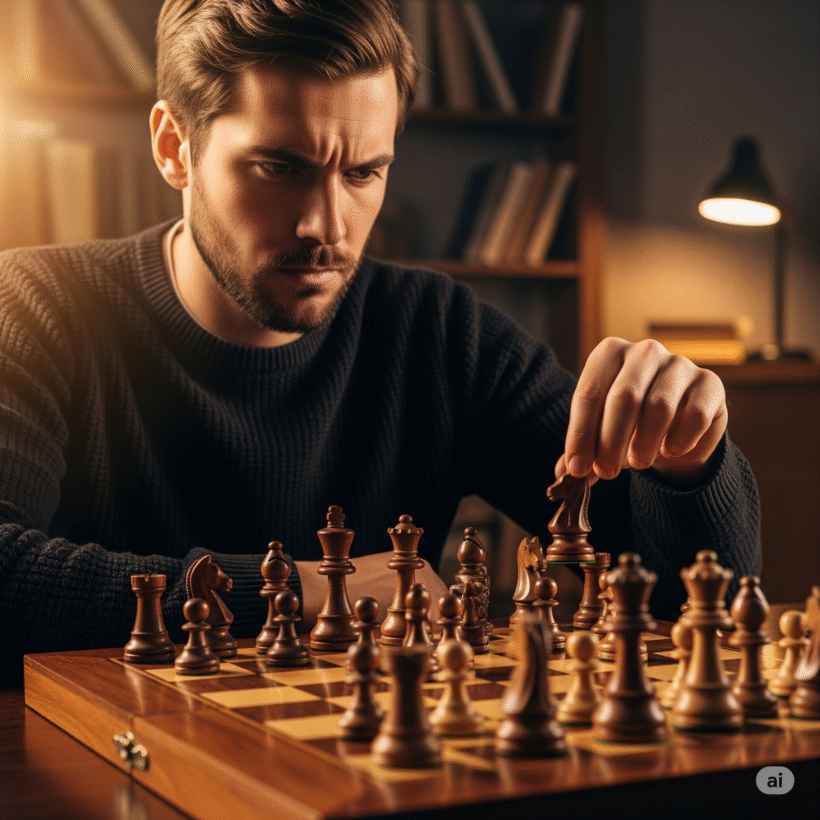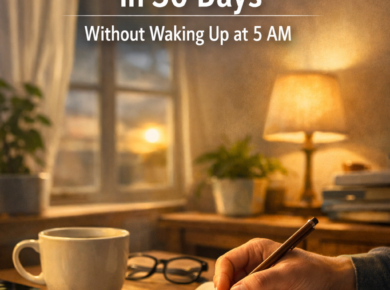What Chess Taught Me About Becoming a Top Performer
When I was a child, I thought chess was just a game. A board, some pieces, and a few rules. But as I grew older and started playing more seriously, I realized something powerful: chess is more than a game—it’s a teacher.
Over the years, the lessons I learned from chess helped me grow not just as a player, but as a person and a professional. Today, I want to share how this ancient game shaped my mindset and helped me become a top performer in my career.
♟️ 1. Think Before You Move
In chess, every move matters. One wrong step can cost you the game. That’s why good players pause, think, and plan before making a move.
This habit carried over into my work life. Whether I’m leading a team, solving a problem, or making a decision, I’ve learned to slow down and think things through. I ask myself:
- What are the risks?
- What are the possible outcomes?
- How will this affect others?
This simple habit of thinking before acting has helped me avoid mistakes and make smarter choices.
2. See the Big Picture
In chess, you can’t just focus on one piece. You have to see the whole board. You need to understand your position, your opponent’s threats, and your long-term goals.
This taught me to zoom out in real life too. At work, it’s easy to get stuck in the details. But top performers always keep the big picture in mind. They ask:
- What’s the goal?
- How does this task fit into the bigger plan?
- Are we moving in the right direction?
By thinking like a chess player, I’ve learned to stay focused on what really matters.
3. Adapt to Change
No chess game ever goes exactly as planned. Your opponent will surprise you. You’ll make mistakes. The board will change.
That’s why top players are flexible. They adapt, adjust, and keep going.
This mindset is gold in the real world. Plans fail. Markets shift. People change. But instead of panicking, I’ve learned to stay calm and adapt. I ask:
- What’s changed?
- What can I control?
- What’s the best move now?
Being adaptable has helped me stay strong in tough times and bounce back from setbacks.
4. Train Your Mind Like a Muscle
Chess is a mental workout. The more you play, the sharper you get. You learn patterns, improve focus, and build memory.
This taught me that performance is not just about talent—it’s about training.
In my career, I apply the same idea. I read, practice, and learn every day. I treat my mind like a muscle. The more I use it, the stronger it gets.
Top performers don’t wait for success. They train for it.
5. Stay Calm Under Pressure
In a tight chess match, your heart races. The clock ticks. One mistake can end it all. But the best players stay cool. They breathe, focus, and think clearly.
This skill is priceless in high-pressure situations at work. Deadlines, conflicts, and crises are part of life. But I’ve learned to stay calm, stay focused, and keep thinking.
When others panic, top performers stay steady. That’s what makes the difference.
6. Learn from Every Loss
In chess, you lose a lot. Even the best players lose. But they don’t give up. They analyze their games, learn from mistakes, and come back stronger.
This taught me that failure is not the end—it’s a lesson.
In my career, I’ve faced failures too. Missed goals. Rejected ideas. Tough feedback. But instead of feeling defeated, I ask:
- What went wrong?
- What can I learn?
- How can I improve?
Every loss is a step toward growth. That’s the mindset of a top performer.
7. Play the Long Game
In chess, quick wins are fun, but real success comes from long-term strategy. You plan ahead. You build your position. You wait for the right moment.
This taught me the value of patience and persistence.
In life, success doesn’t come overnight. It takes time, effort, and smart planning. I’ve learned to:
- Set long-term goals
- Stay consistent
- Trust the process
Top performers don’t chase shortcuts. They play the long game.
8. Respect Your Opponent
Chess teaches you to respect your opponent. Every player has strengths. Every game is a chance to learn.
This helped me become a better team player and leader. I’ve learned to:
- Listen to others
- Value different views
- Learn from everyone
Top performers don’t compete to crush others. They grow by learning from them.
9. Make Every Move Count
In chess, you only get one move at a time. You can’t undo it. So you make it count.
This taught me to be intentional in everything I do. Whether it’s a meeting, a project, or a conversation, I ask:
- What’s the goal?
- What’s the best use of my time?
- How can I add value?
Top performers don’t waste moves. They make every action count.
10. Keep Climbing
Chess has no final level. There’s always someone better. Always more to learn.
This taught me to stay humble and hungry.
No matter how much I achieve, I keep learning. I keep growing. I keep climbing.
That’s the mindset of a top performer: always improving, always reaching higher.
Final Thoughts
Chess may look like a simple board game, but it’s a masterclass in performance, mindset, and growth. It taught me how to think, adapt, lead, and learn.
Whether you play chess or not, the lessons are universal:
- Think before you act
- See the big picture
- Stay calm under pressure
- Learn from failure
- Keep growing
These are the habits that turn good people into great performers.
So next time you see a chessboard, remember: it’s not just a game. It’s a guide to greatness.








